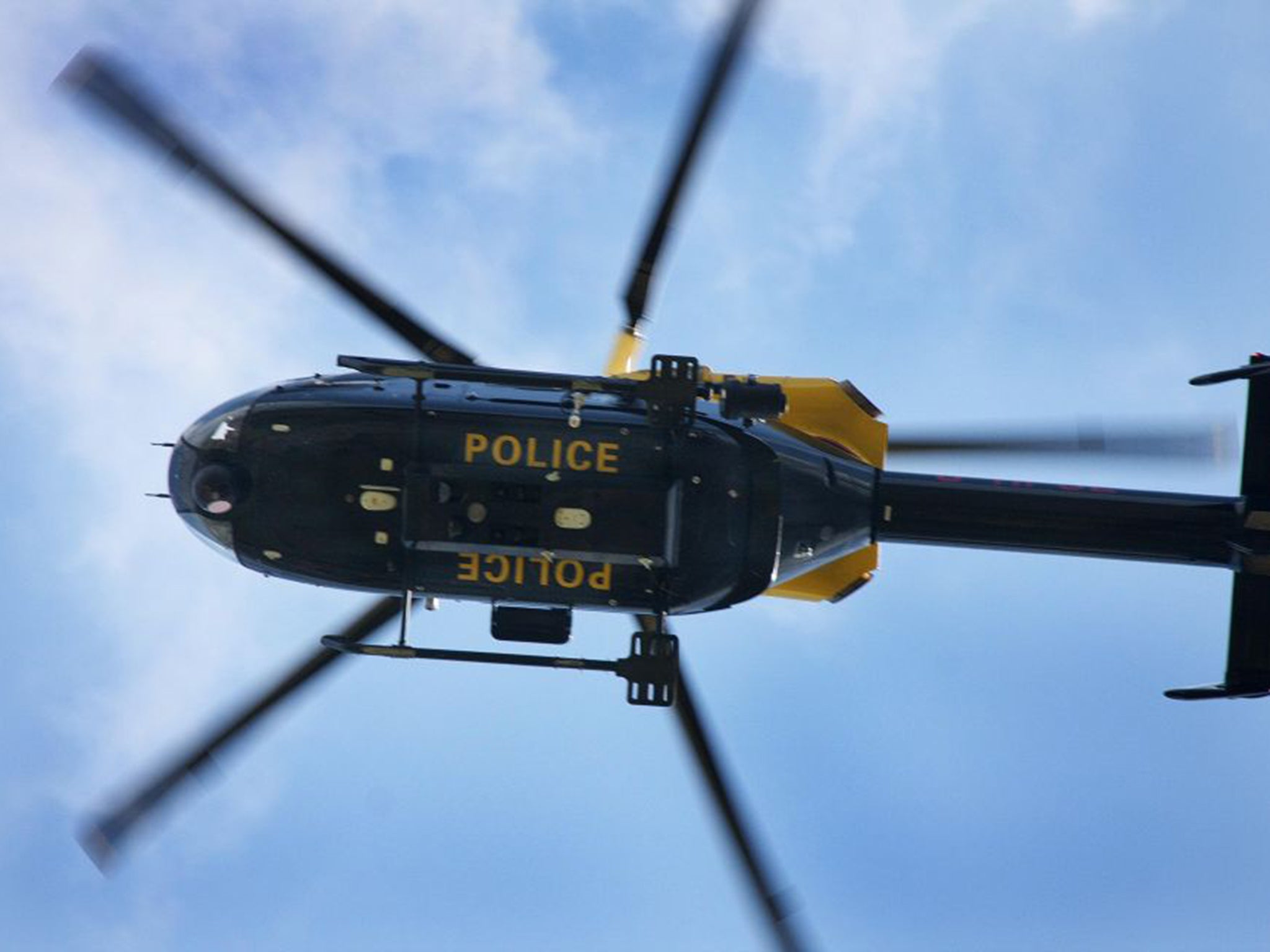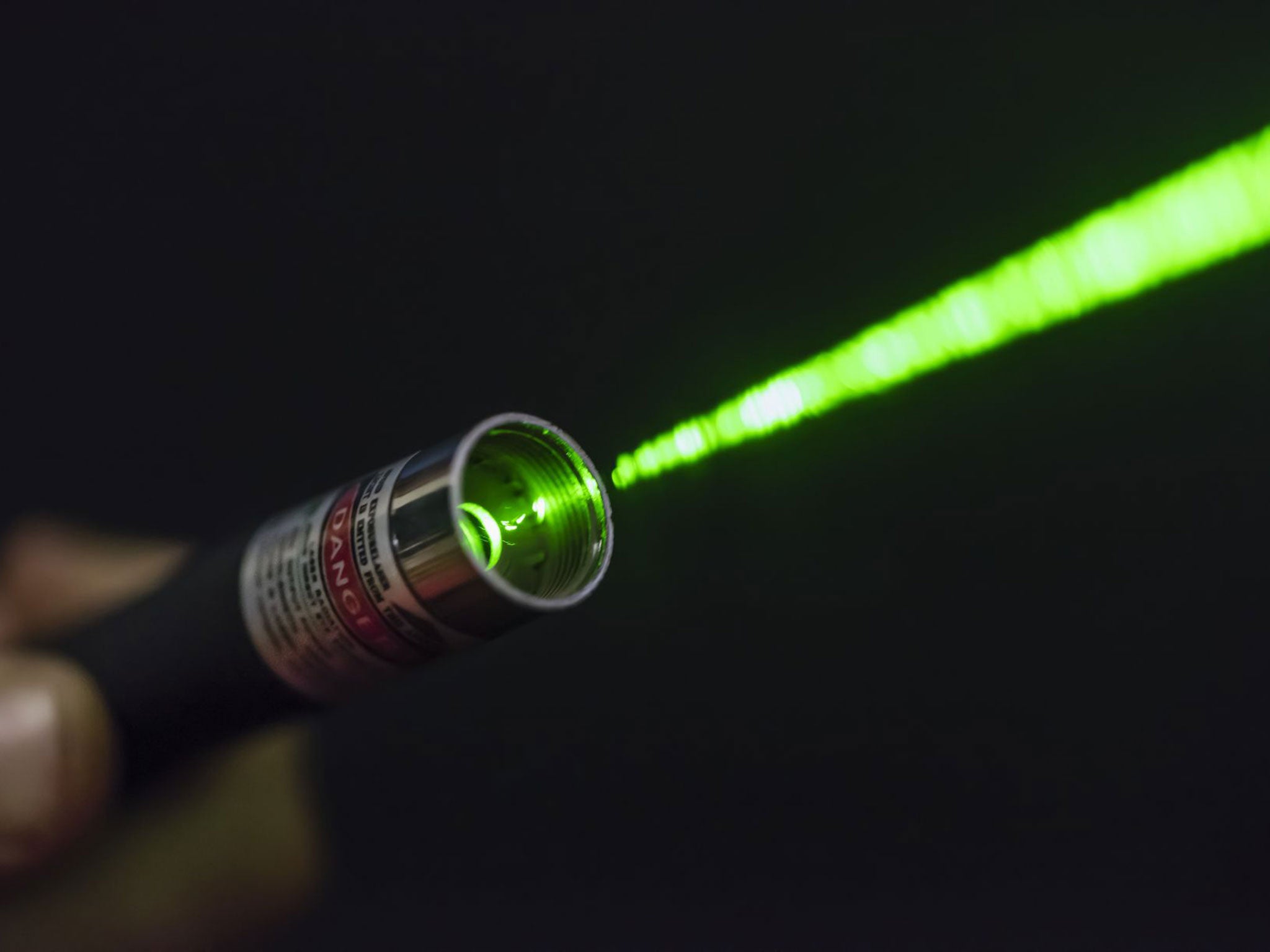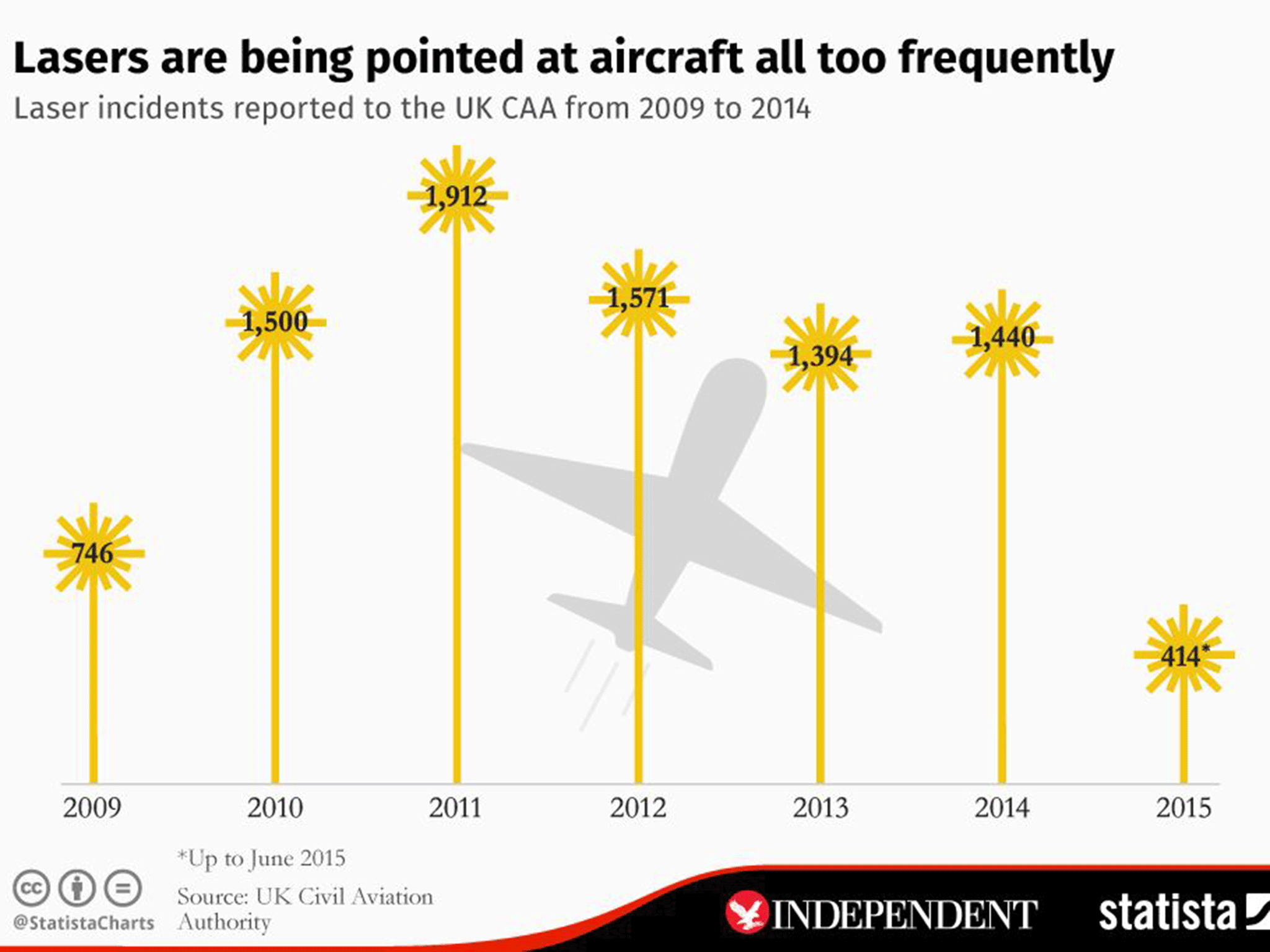Laser attacks on aircraft more than double within a decade
Police helicopter pilots equipped with protective eyewear as concern prompts calls for law on lasers to be changed

Police helicopter pilots are to be equipped with protective eyewear amid concern at a steep rise in laser attacks on aircraft. Incidents have more than doubled in less than a decade.
In an effort to stop the rising use of lasers against planes and helicopters, government ministers will hold talks this week with the Civil Aviation Authority (CAA), Public Health England, the Metropolitan Police and Trading Standards. They will discuss calls to restrict the sale of lasers, and demands by pilots unions and the police for the law to be changed to classify them as offensive weapons.
A government spokesperson said: “The Government is aware of the issue and is meeting stakeholders, including the Civil Aviation Authority, to determine what more can be done to protect the public from the potential dangers of certain laser products.”
Last Sunday, a Virgin Atlantic passenger jet bound for New York was forced to return to Heathrow airport when the co-pilot fell ill after a laser was shone at the cockpit shortly after take-off. Earlier this month, the Pope’s plane had been targeted by a laser on its approach to Mexico City. And on Friday, sentencing Philip Houghton, 25, from Hull, to five months in jail for shining a laser at a police helicopter, District Judge Frederick Rutherford warned: “It is only a matter of time before a tragedy is caused by this type of behaviour.”
About 1,800 incidents were reported to the CAA last year, according to the Police Federation of England and Wales. In contrast, there were only 746 incidents reported in 2006. The surge in use of lasers against aircraft equates to five incidents a day.

The National Police Air Service (Npas), which has 17 bases in England and Wales, is to equip its pilots with protective eyewear this year. This comes after a successful trial carried out last month in conjunction with the Ministry of Defence (MoD) and the Health Protection Agency. Lasers were directed at the crew of a helicopter wearing different forms of protection, based on a dye coating which absorbs light, or a mirrored coating that reflects it.
Police helicopters can pinpoint where people are directing the lasers from, but this carries a risk to pilots. There were more than 100 attacks against police helicopters last year.
Ollie Dismore, director of operations for Npas, said: “Where you’ve got big airports – Stansted, Birmingham, Manchester, Gatwick, Heathrow – that are being consistently targeted, we are then invited to put aircraft up to be targets and encourage laser attacks which I’m not prepared to do unless they’ve got some form of mitigation of the risk of attack on themselves.
“Laser specs will allow us to be proactive in supporting other airspace users, for example where airports are reporting multiple attacks on airliners. Then with the specs we will be able to send the police helicopter prepared for an attack so we can catch the perpetrators.”
It is illegal, under the Air Navigation Order, to shine a light at any aircraft in flight with the intention of dazzling or distracting the pilot. People can face a prison sentence of up to five years if found guilty of endangering the safety of an aircraft.
But the British Airline Pilots Association is calling for laser pointers to be classed as offensive weapons, which would give the police more power to arrest people for possessing them if they had no good reason to have them. Mr Dismore said: “A quick win would be to classify lasers as offensive weapons, not making them illegal to buy, to sell or own, but actually if they are misused to give the police the power to arrest people as a result. At the moment, the only legislation for most offences is aviation legislation which isn’t necessarily within the normal understanding of bobbies on the beat.”

There have been more than 10,000 incidents targeting civilian aircraft in the UK in the past seven years. British military aircraft have also been targeted, with 250 laser-related defence air safety occurrence reports in the past five years, according to the MoD.
There is no law preventing the sale of lasers which are far more powerful than ones up to 1mW which can be bought by the general public. The website of one company, based in London, describes how people can buy laser pointers so powerful they “can burst balloons, melt plastic and have a range of up to 100 miles”.
A spokesperson for the Professional Pilots’ Union, said: “There is massive concern about the increase in misuse of high-powered lasers within the aviation industry. Restrictions on the use of such high-powered lasers must be introduced.”
Join our commenting forum
Join thought-provoking conversations, follow other Independent readers and see their replies
Comments
Bookmark popover
Removed from bookmarks